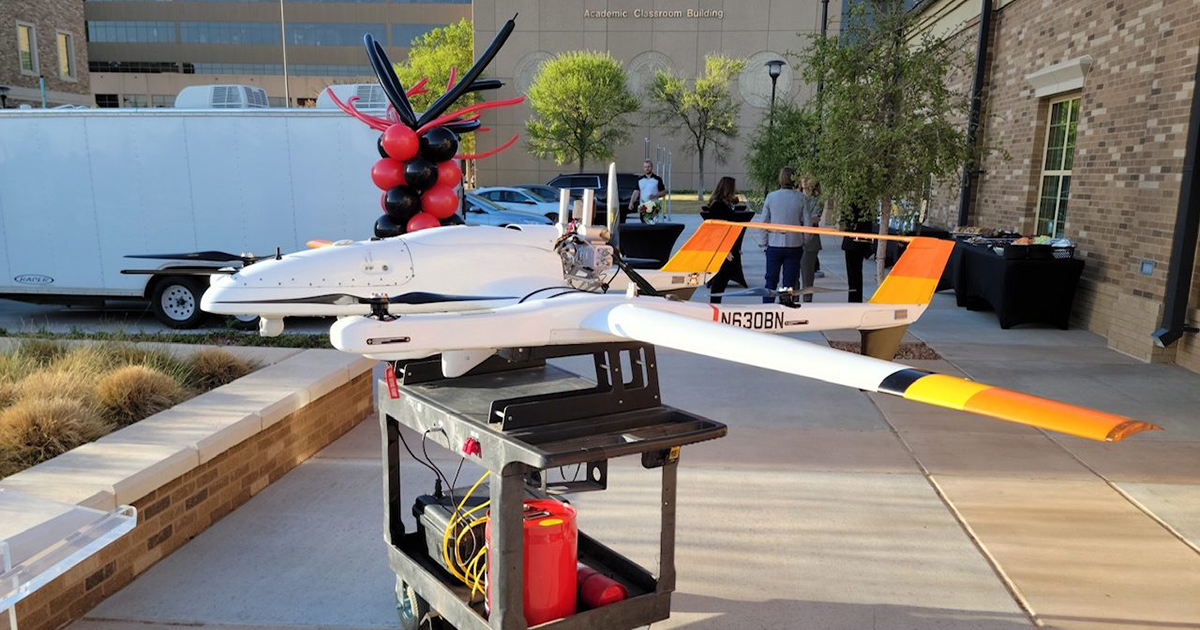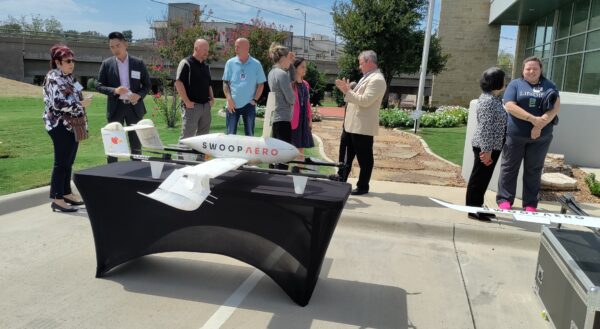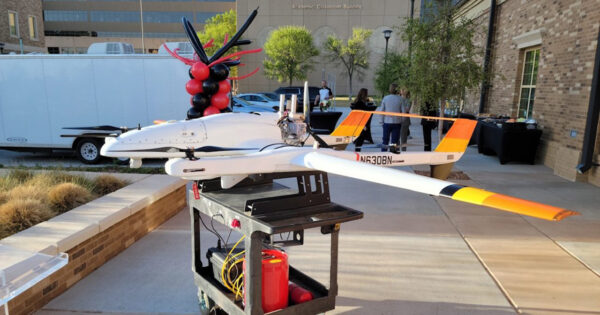LifeGift Joins Consortium to Advance Drone Technologies
April 14, 2022
LifeGift in conjunction with Texas Tech University Health Sciences Center (TTHHSC), Texas Tech University, 2THEDGE and others, recently unveiled the groundwork of a future public-private collaboration supporting the advancement of Unmanned Aerial Systems (UAS) research at a summit event on the TTUHSC campus. The proposed Matador UAS Consortium includes LifeGift, Texas Tech University, South Plains College, and additional organizations that together will combine their expertise to innovate and advance the operational and technical capabilities of UAS technology across West Texas and the South Plains region.
An early focus of the Matador Consortium will aim to harness UAS technology to innovate rural health care services, specifically in the area of safe and rapid organ and tissue procurement for life-saving treatments and research in collaboration with LifeGift. It will feature a team of world-class UAS enterprises, university research departments, and U.S. government agencies that are actively pushing the boundaries of BVLOS transport using pipeline, electrical, transmission and railroad corridors for uninterrupted flights to remote locations – to conduct proof-of-concept research into the safe UAS organ transport of tissues, organs health care supplies and medicines. The Matador UAS Consortium research aims to mitigate risks to biological materials and streamline organ transfer through efficient use of drones in dedicated flight corridors that are not heavily impacted by conventional air traffic limitations.
“The use of drone transportation of organs and associated tissues is a critically important mode of transportation to facilitate faster and more reliable movement of organs for transplant, especially in rural areas such as West Texas and neighboring areas,” said LifeGift president and chief executive officer Kevin Myer.
“Our collaboration with LifeGift is an example of the transformative health care that we envision for this region and across the state,” said TTUHSC President Lori Rice-Spearman, Ph.D. “UAS technology combined with our efforts in telehealth and telemedicine is truly an innovative approach to expanding access to quality health care in rural, underserved areas.”
The Matador Consortium summit event was hosted at the TTUHSC campus on April 5-6, attended by current collaborators to lay the groundwork for future research. The consortium plans to continue drone testing, eventually flying biological materials, including organs, beyond line-of-sight. The announcement was made during National Donate Life Month, which supports and encourages Americans to register as organ, eye and tissue donors and to honor those that have saved lives through the gift of donation.



